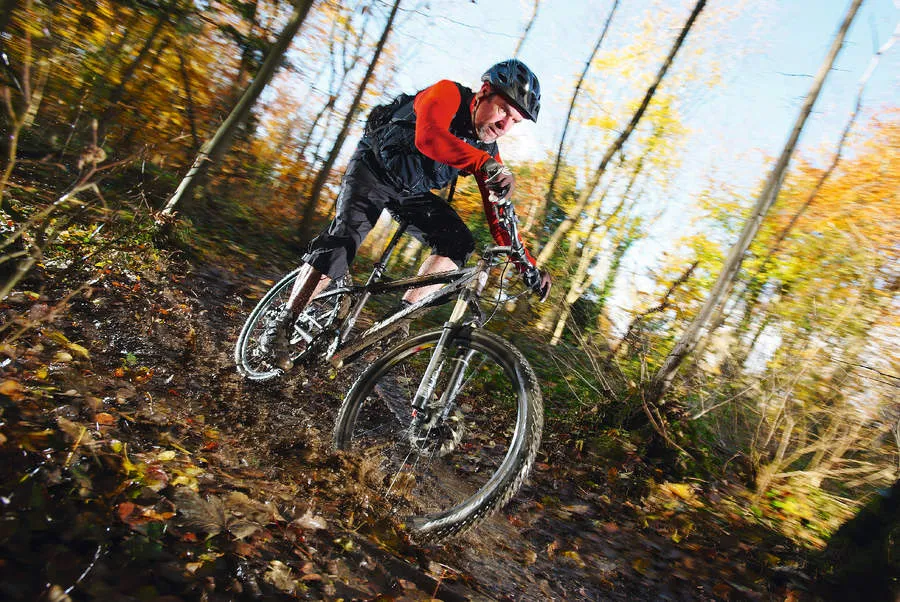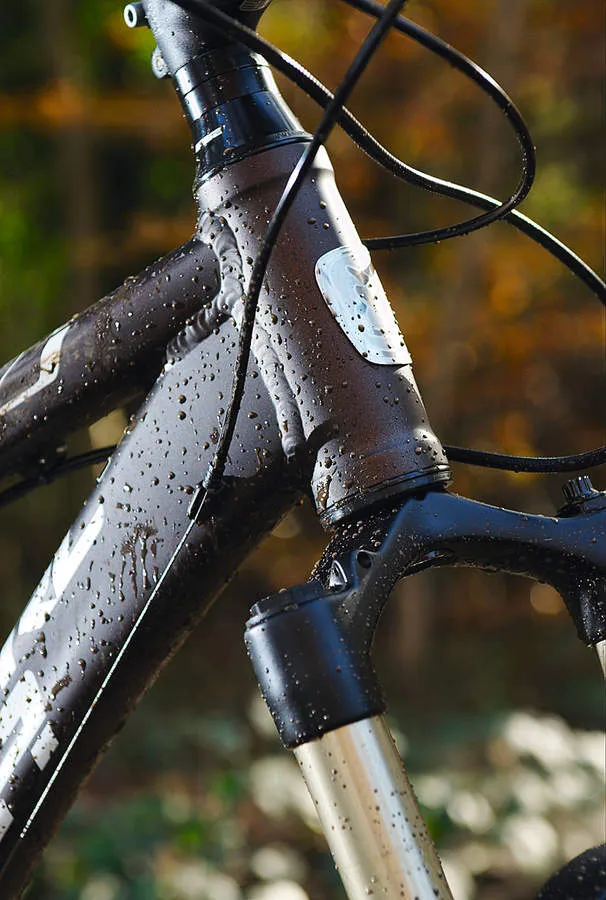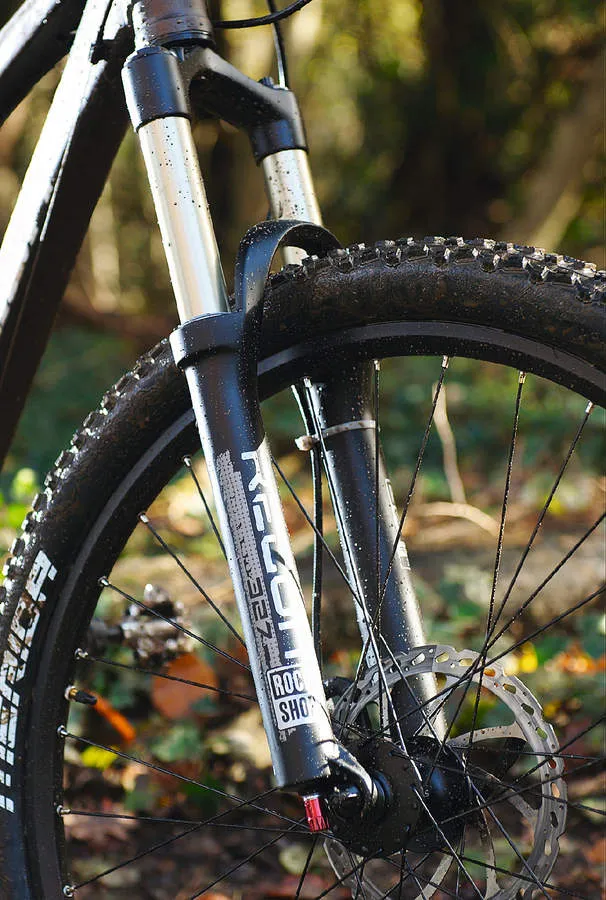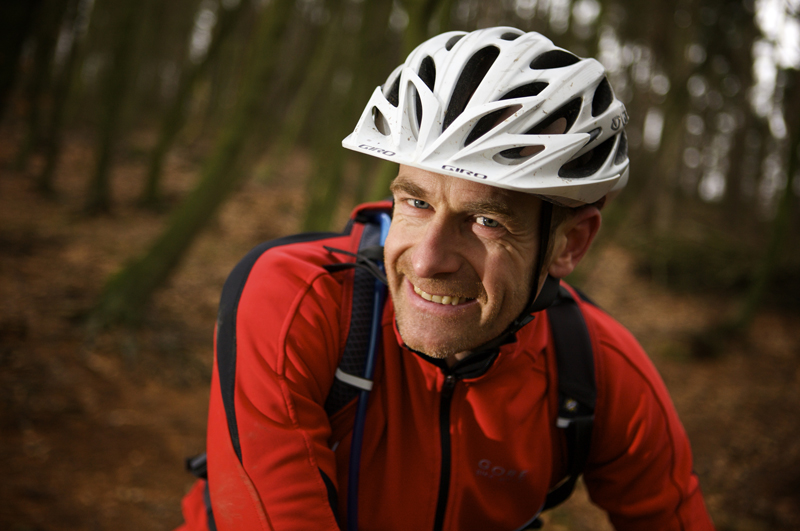We tested the Matts TFS Trail 700-D hardtail directly after one of Merida’s low-budget full suspension bikes, the Trans-Mission 300-D, and the difference was remarkable. It seems that, after recent price hikes, even the big manufacturers are finding it a struggle to create decent full-suspension bikes for much less than £1,000. With state-of-the-art frame technology and sensibly light finishing parts, hardtails like the 700-D are often a better bet at this price point.
There are two very different ways of building a hard-hitting cross-country hardtail: assume abuse and add heft to toughen things up, or assume a certain amount of finesse/caution and keep weight down to make things flow better. With the 700-D, Merida has focused on the latter. Heft is reasonable, but tough terrain is made easier with a long fork, big brakes and tough wheelset. Merida has hit the nail on the head without resorting to a lump hammer.
Ride & handling: An easy bike to ride hard
The 700-D’s chunky looks belie its nimble trail manner. Reasonable heft is complemented by surprisingly sharp handling responses – the sort that usually come with shorter travel hardtails – but the 120mm fork allows you to carry extra speed through the sort of terrain that would hinder bikes with shorter forks.
There are certainly times when a lockout option would have been welcomed on stand-up climbs, but climbing is still proficient due to the 26lb weight. The bike is at its best with the RockShox Recon fork set up fairly soft – the lively geometry encourages you to stay stitting, keeping the power down and letting the fork do all the donkey work.
The tyre volumes are big enough to take a lot of the follow-through sting out of the back end and the saddle is more comfy than it looks. In short, the 700D is an easy bike to ride hard.
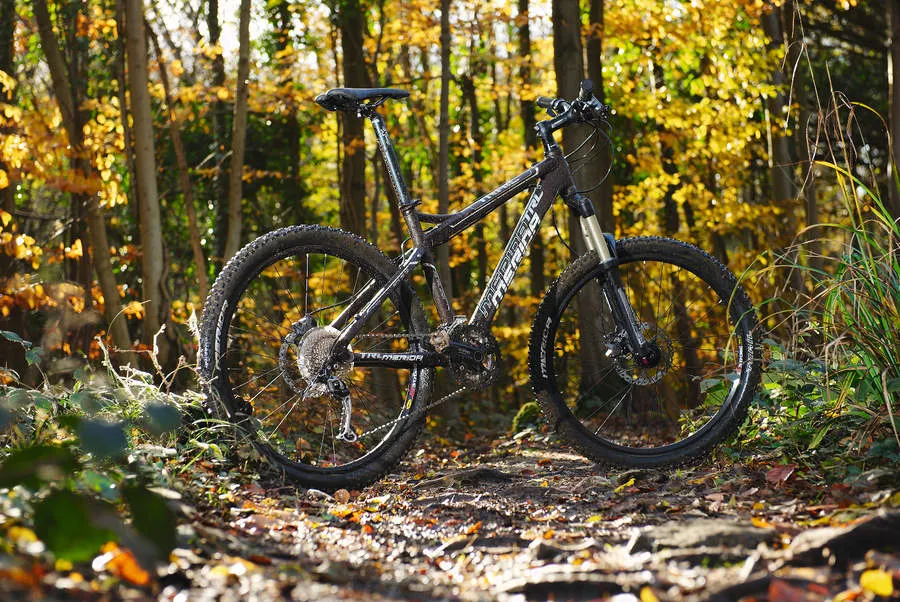
Frame: Strong yet light thanks to cutting-edge technology
As the world’s second biggest bike maker, Merida has a lot of technical knowledge and capacity for creative thinking when it comes to building frames, and it's not shy about plastering its frames with acronyms to tell you about it.
Take a look at Merida’s website for an explanation of MATTS (Merida Advanced TIG-Welding Technology System), TFS (Techno Forming System) and TRL (Trail), or just read the frame with your head at jaunty angles – you’ll either love or hate the OTT tech tags and graphics littering the super-tough dark chocolate paint but you can’t fault the construction prowess behind them.
Actually, it’s Merida’s TFS tube forming technique that keeps prices lower than the more costly hydroformed frame structures. You also end up with some interesting strong yet light tube profiles – the complete bike weighs a reasonable 26.3lb.
A girder-profiled down tube flares into the reinforced head tube and joins the almost box-sectioned sloping top tube for extra strength. The top tube bridges across to the top of the seat tube, which has a forward-slotted clamp. Unfortunately, the quick-release mechanism itself is a poor quality unit that needs brute force to keep the post tight.
The 700-D has everything you need for a complete all-rounder mountain bike, including rack mounts just in case you get bored with its rough riding competance on the trail. The seatstays and chainstays are proflied for lateral stiffness and a touch of vertical compliance, and there’s plenty of mud room around the tyre.
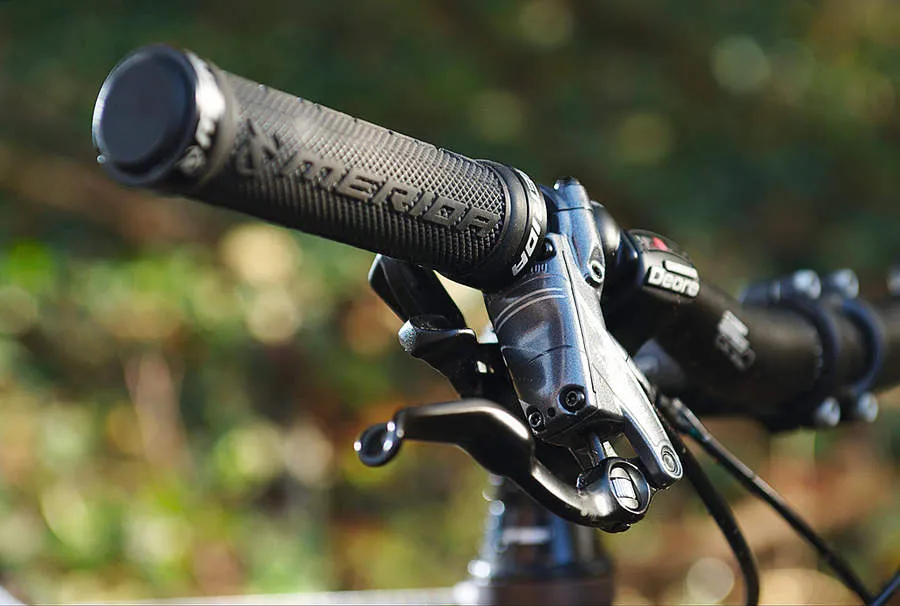
Equipment: Great fork and wheels, and low-cost finishing kit does the job
The fork choice might disappoint those looking for a single bike for all purposes, simply because it doesn’t have a lockout. Otherwise, it’s a great fork for the sort of hard and fast riding the bike is intended for. The air spring and excellent rebound damping allow every rider to set the ride feel to suit and the 120mm of travel is well mated to the frame geometry.
It’s easy to see where else Merida has trimmed the costs to keep the 700-D under the £1,000 mark. The crankset, shifters and front gear mech are all Shimano Deore to make room for an XT rear mech. Shifting was generally fine, although we’ve noticed that the shifting accuracy of Shimano’s Shadow mechs is more affected by mud and leaves than older models.
The Merida Trail tyres are certainly not the greatest on the slippery surfaces that dominated the test, but their 2.25in profile and wide spaced knobs add comfort, and grip is acceptable provided you take a little care with their hard compound on rocks and roots.
The Mavic and Shimano wheels are excellent, and most riders will welcome the extra stopping power of the 180mm rotor on the Hayes Stroker Trail brakes: they were great after a couple of rides to bed them in.
The rest of the finishing kit is low-cost, Merida-branded X Mission stuff. It all does the job competantly and we especially liked the riser bar shape and the bolted-on grips.
